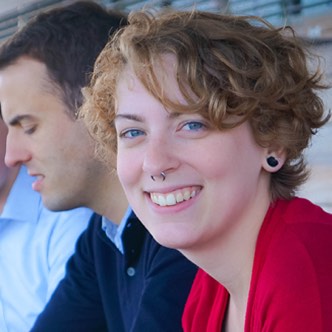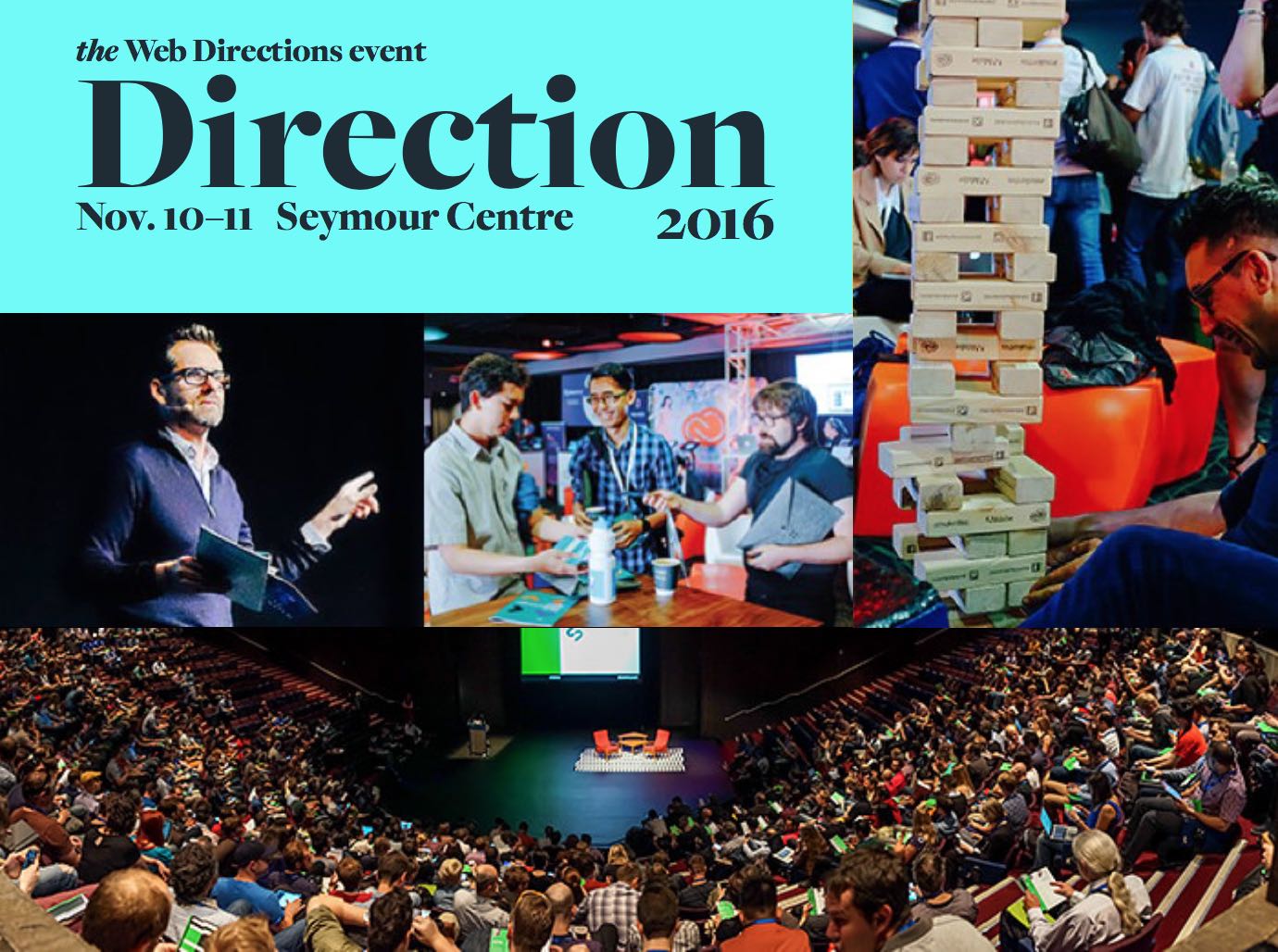Monday Profile: Alicia Sedlock
 At our Code 16 conference, Alicia Sedlock gave a very popular presentation on testing – not, you might think, the most rivetting subject but one made practical and accessible by Alicia.
At our Code 16 conference, Alicia Sedlock gave a very popular presentation on testing – not, you might think, the most rivetting subject but one made practical and accessible by Alicia.
It probably didn’t hurt that Alicia featured a few snaps of her favourite companion, Mabel the hedgehog. Here’s the interview we conducted with Alicia (but not Mabel) for Scroll Magazine before the conference.
Q What made you decide you could do this for a living?
A Well, the glamourous way it all began was sitting on my parents’ Dell PC making custom LiveJournal and MySpace layouts. Seriously. I thought I’d end up being able to make layouts for famous Internet personae and make a lot of money doing it.
That’s what sparked my initial web development interests, which inspired me to sign up for my high school’s Intro to Web Design elective. It was a half year elective that opened me up to what HTML really was, how CSS works, and how to do animations and interactivity in Flash. I went on to sign up for the full year course in my junior year, and as independent study in my senior year, and ended up majoring in Web Design and Interactive Media in college. I was always a creator at heart (don’t even ask me how many art mediums I’ve tried to pick up) and web development stuck, for some reason.
Q Have you ever coded live on stage, or in front of an audience? How did it go?
A I recently attempted my first live code talk at my work, giving a Lunch & Learn talk to our development team about CSS flex and grid layouts. I thought, “I know this fairly well, I’ll just dive right in!” Turns out, that didn’t work too well. Debugging on a giant projector is somehow even more nerve wracking than anything I’ve done in front of a group before.
Q How do you further develop and extend your skills? Books, courses? Noodling by yourself?
A I follow a lot of people on Twitter. A lot. And even though it’ll take me all day to catch up on my timeline, I get exposed to a lot of new and upcoming things – SVG, React, animations, accessibility, new web standards, you name it.
I essentially use it as a filter, so that when a topic comes across the feed that I’m excited about, I have a place to start digging in. I end up reading a lot of blog posts, forking a lot of pens on CodePen, messing around with them, then building something small and dinky to get my teeth into something.
Q Is it better to learn HTML then CSS then JavaScript, or JavaScript then HTML then CSS, or all three at once, or something else?
A I think it depends on what your goals are for learning. If your goal is to have a visual interface that you can interact with to do cool things, then getting a handle on HTML/CSS before JavaScript might be the better approach. If you don’t care about interfaces and simply want to punch out crazy computations or algorithms, perhaps learning JavaScript first would get you there. I’d say it’s a case-by-case basis.
Q What’s the best way to get more women coding?
A There are already a lot of women in programming. It’s about how do we keep them from leaving the industry, which requires looking at the hard truth about why women leave the industry. Lack of work life balance, lack of support for new mothers, and then, you know, the constant harassment and abuse many women experience throughout their careers, both online and in their workplaces. So if we want to keep women in the industry, we need to address these types of systemic issues right where they are – in our workplaces, our open source communities, our conferences.
Q Frameworks. What’s your take? Are they good, bad or does it depend on how you use them?
A It absolutely depends on how and why you use them. The impression I get these days is that many developers are looking for THE framework, the framework that they’ll use for every project for the rest of their days. If they work on one particular kind of application, and make that same application over and over again, then maybe that can be a reality. But every framework has their upsides and downsides, so for the majority of us, it’ll never be that easy.
Developers need to really look at frameworks and say, “What is this really giving me that I can’t live without? What problems am I facing that this framework solves that I can’t solve without it?” I’d say the mentality of “always use a framework” is more dangerous than the frameworks themselves.
Q Tabs or spaces?
A Soft tabs. Fight me.
Q What’s on your horizon?
A To be quite honest, I’m not really sure. None of my career thus far has been part of a long-term plan. I only end up making decisions as opportunities arise. However, the one thing I would like to achieve eventually is to make a game that works in the browser, and on all devices.
Want more?
Like to see and read more like this? Be the first to score invitations to our events? Then jump on our once-a-week mailing list where we round up the week’s best reading and watching on all things Web. And you’ll get a complimentary digital copy of our brand new magazine, Scroll.
Great reading, every weekend.
We round up the best writing about the web and send it your way each Friday.

